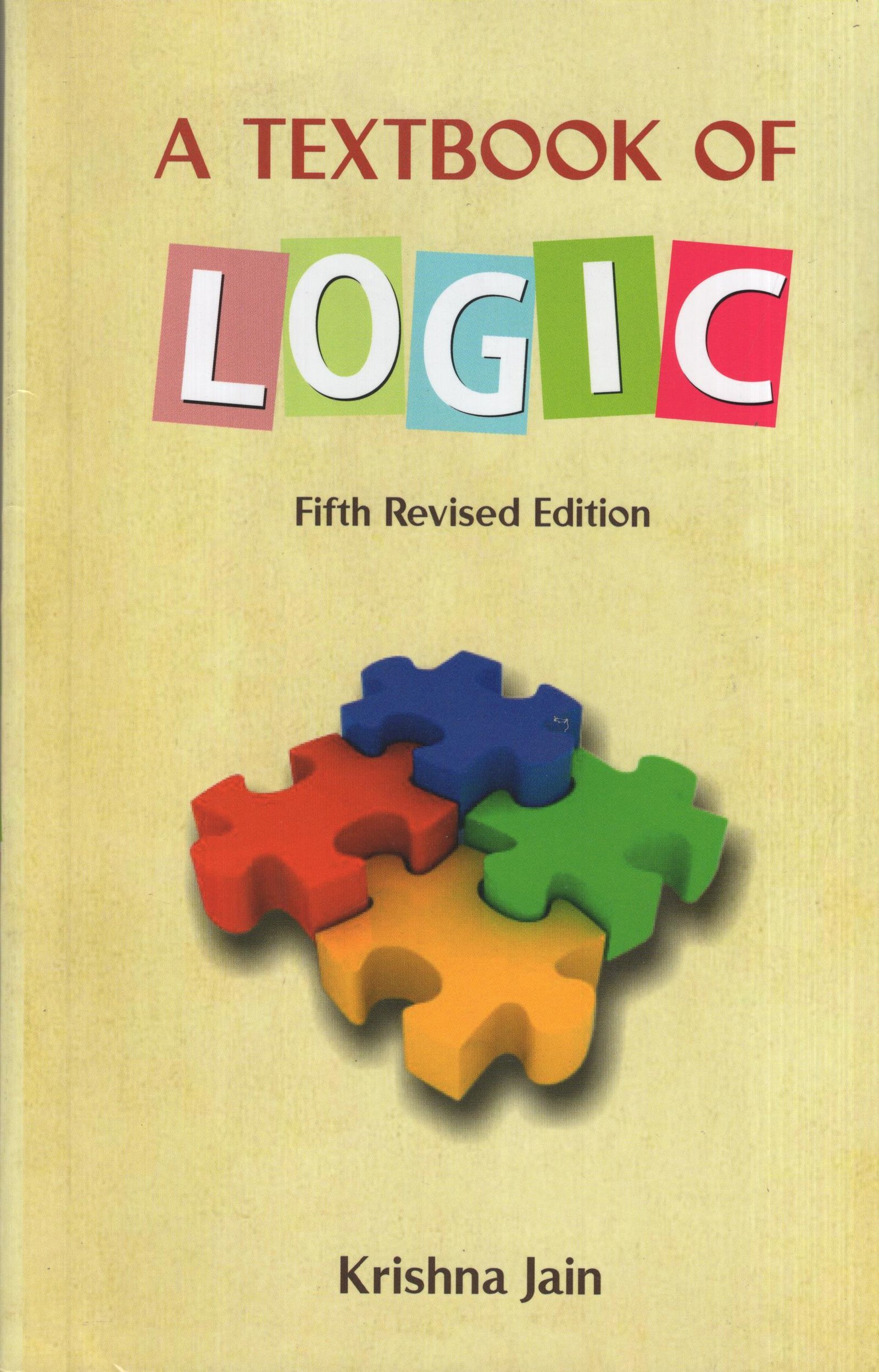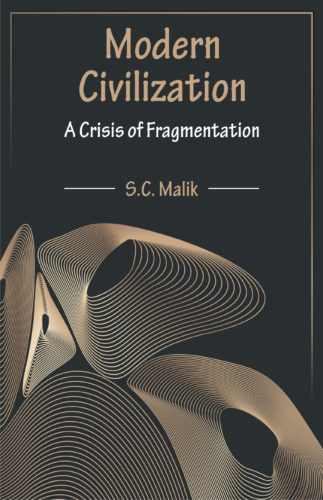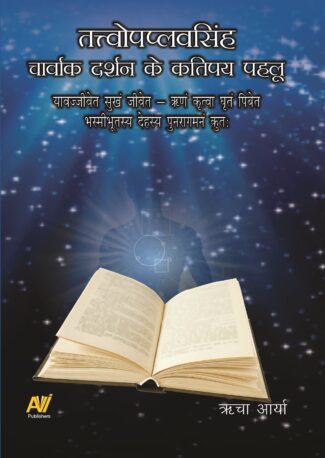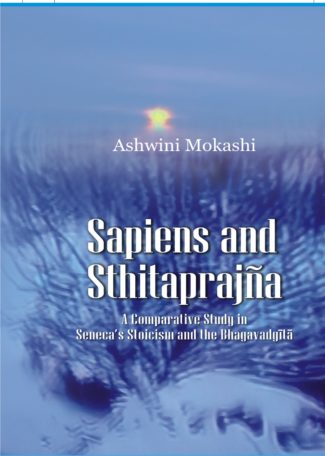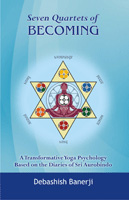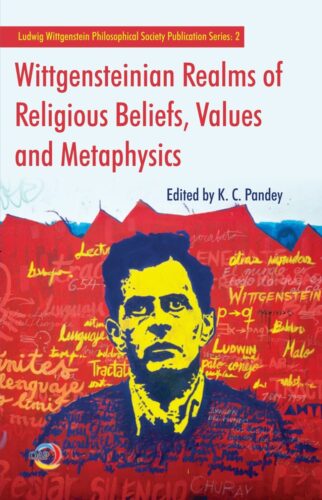
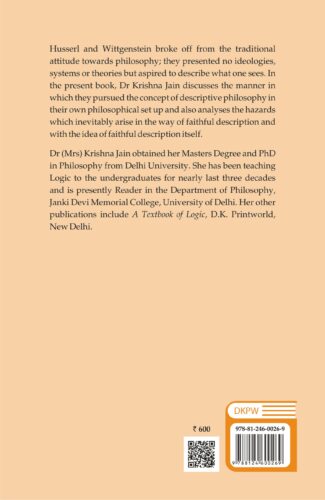
Description in Philo...
Description in Philosophy
With a Particular Reference to Wittgenstein and Husserl by: Krishna JainThis book discusses the manner in which Wittgenstein and Husserl pursued the concept of descriptive philosophy in their own philosophical set-up. It analyses the hazards arising in the way of faithful description and with the idea of faithful description itself.
₹600.00 Original price was: ₹600.00.₹540.00Current price is: ₹540.00.
ISBN: 9788124600269
Year Of Publication: 2018
Edition: 2nd impression
Pages : 171
Bibliographic Details : Bibliography; Index
Language : English
Binding : Hardcover
Publisher: D.K. Printworld Pvt. Ltd.
Size: 23 cm.
Weight: 350 gm.
Husserl and Wittgenstein broke off from the traditional attitude towards philosophy; they presented no ideologies, systems or theories but aspired to describe what one sees. In the present book, Dr. Krishna Jain discusses the manner in which they pursued the concept of descriptive philosophy in their own philosophical set up and also analyses the hazards which inevitably arise in the way of faithful description and with the idea of faithful description itself.
Preface
1. The Concept of Description
2. Description in Wittgensteins : Tractatus
3. Description in Wittgensteins Later Works
4. Description in Husserls Philosophy
5. Limits of Description
6. Hazards of Philosophical Description
Bibliography
Index

- Sale!Modern Civilization by:
₹800.00Original price was: ₹800.00.₹720.00Current price is: ₹720.00.The crisis of the age inheres in this, that notwithstanding the century’s mind-numbing disasters, it persists in subscribing to propositions which have logically led to the atomization of the whole cloth of human experiencing, and being. Great indeed is the value which is placed on the procedure of analytic dismemberment. While the method has certainly been result-producing, materially, in its wake it has brought immense suffering – both physical and spiritual. The price paid for a lopsided advance is thirty major wars – with their toll of one hundred and thirty million lives, and the irreparable destruction of the natural environment. The time demands a reappraisal of the basic paradigms of human existence, but the hegemony of well-entrenched vested interests – material or intellectual – would seem to preclude this.
The “advanced” people among the mankind of the day become suicidally specialized. For, if the mechanical model of thought has been of advantage in man’s preceding unfolding, the same, what may be called the “survival” paradigm, now creates dangerous dualities, binary oppositions (you–me, body–mind, East–West, etc). The model has outlived its usefulness merely enforcing dormancy on a major part of the human brain.
It behoves mankind to choose wisely right now – since parallel to the socio-economic, scientific and technological revolutions there has got to be the overdue radical psychic transformation. The first step towards clearing the fateful crisis would therefore be to be aware and end the hold of the linear, causal, mechanical thought orientation over the intellectual culture of the times.
Delving deep into the epistemological cum ontological causation of the emergency confronting the being and becoming of man, this volume provokes the thoughtful lay reader to a serious engagement with his or her self. - Sale!Tattvopaplavasimha Carvaka darasana ke katipaya pahalu (???????????????? ??????? ????? ?? ????? ????) by: Richa Arya
₹795.00Original price was: ₹795.00.₹716.00Current price is: ₹716.00.Jayarashibhatta’s Tattvopaplavsimha (ca. 8th cent.) is considered to be an important work of the Caravaka (Charvak) philosophy. The Charvak philosophy rejects evidence other than the direct evidence, to the extent that it does not consider sky as an element in the five fundamental elements (earth, water, fire, air and sky). The manuscript of Tattvopaplavisimha was obtained from Patan (modern-day Patna) in 1926. It was published in the Oriental Series in 1940 and with an introduction in Hindi by Pandit Sukhlal Sanghvi in 1987. The historical work examines the definitions of the evidence as accepted by various arms of Indian philosophy. The present book reviews the refutation of various epistemological principles explained in Tattvopaplavsimha.जयराशिभट्ट कृत तत्त्वोपप्लवसिंह (आठवीं शताब्दी) चार्वाक दर्शन का ग्रन्थ माना जाता है। चार्वाक दर्शन प्रत्यक्ष प्रमाण के अतिरिक्त सभी प्रमाणों को अस्वीकार करता है, इसके साथ ही प्रत्यक्ष को ही एकमात्र प्रमाण मानने के कारण चार्वाक पंचतत्वों (पृथ्वी, जल, अग्नि, वायु एवं आकाश) में आकाश तत्त्व को नकारता है। तत्त्वोपप्लवसिंह ग्रन्थ की पाण्डुलिपि सन 1926 में पाटन से प्राप्त हुई। सन 1940 में ओरियंटल सीरीज में तथा 1987 में पंडित श्री सुखलाल जी सांघवी की हिंदी भूमिका के साथ प्रकाशित हुआ। यह ग्रन्थ वैतण्डिक पद्धति होने के कारण भारतीय दर्शन के विभिन्न सम्प्रदायों द्वारा स्वीकृत प्रमाणों की परिभाषाओँ और प्रमाण की परीक्षा करता है। प्रस्तुत पुस्तक में तत्त्वोपप्लवसिंह में व्याख्यायित विभिन्न ज्ञानमीमांसीय सिद्धांतों के खंडन की समीक्षा की गयी है।
- Sale!Sapiens and Sthitaprajna by: Ashwini A. Mokashi
₹800.00Original price was: ₹800.00.₹720.00Current price is: ₹720.00.Sapiens and Sthitaprajna studies the concept of a wise person in the Stoic Seneca and in the Bhagavadgita. Although the Gita and Seneca’s writings were composed at least two centuries apart and a continent apart, they have much in common in recommending a well-lived life. This book describes how in both a wise person is endowed with both virtue and wisdom, is moral, makes right judgements and takes responsibility for actions. A wise and virtuous person always enjoys happiness, as happiness consists in knowing that one has done the right thing at the right time.
Both Seneca and the Gita demand intellectual rigour and wisdom for leading a virtuous and effective life. They provide guidelines for how to become and be wise. Both systems demand a sage to be emotionally sound and devoid of passions. This leads to mental peace and balance, and ultimately tranquillity and happiness. While surveying these similarities, this study also finds differences in their ways of application of these ideas. The metaphysics of the Gita obliges the sage to practise meditation, while the Stoics require a sage to be a rational person committed to analysing and intellectualizing any situation.
This comparative study will be of interest to students of both Ancient Western and Ancient Indian Philosophy. Practitioners of Stoicism and followers of the Gita should find the presence of closely-related ideas in a very different tradition of interest while perhaps finding somewhat different prescriptions a spur to action. - Sale!Seven Quartets of Becoming by: Debashish Banerji
₹1,200.00Original price was: ₹1,200.00.₹1,080.00Current price is: ₹1,080.00.Groomed in a modern academic tradition and post-Enlightenment ideals of creative freedom and social critique, Sri Aurobindo (1872-1950) turned his attention to yoga and the limits of consciousness in its ability to relate to and transform nature. In the process, he documented scrupulously his experiments and experiences based on a synergistic existential framework of practice.
Debashish Banerji correlates the approach to yoga Sri Aurobindo took in his diaries with his later writings, to derive a description of human subjectivity and its powers. Banerji constellates Sri Aurobindo’s approach with transpersonal psychology and contemporary lineages of phenomenology and ontology, to develop a transformative yoga psychology redefining the boundaries and possibilities of the human and opening up lines of self-practice towards a wholeness of being and becoming.
Both scholar and Yogi, Aurobindo (1872-1950) carefully documented the unfolding of spiritual consciousness starting shortly after his deep revelatory experiences while in prison in 1908. His observations were recently published in a two volume set, The Record of Yoga. Debashish Banerji has analyzed this work and offers a detailed, clear, systematic and inspirational interpretation of how the Yoga of Sri Aurobindo may be understood and practiced.
Þ From the `Foreword’ of
Prof. Christopher Key Chapple
Doshi Professor of Indic and Comparative Theology Loyola Marymount University, Los Angeles, (USA) - Sale!Wittgensteinian Realms of Religious Beliefs, Values and Metaphysics by: K. C. Pandey
₹1,800.00Original price was: ₹1,800.00.₹1,620.00Current price is: ₹1,620.00.All that cannot be expressed in language, for early Wittgenstein, belong to the realm of Unsayable or Showable. Such a realm consists of religious beliefs, ethical values, aesthetics, metaphysics, solipsism, love, death among other aspects of life which language is incapable of depicting successfully. Later Wittgenstein did not insist on the inexpressibility of these realms as each of them has their own distinct form of life. In this background this anthology is an attempt to explore various facets of these aspects of Wittgensteinian philosophy through various elucidations and interpretations. It is classified into three sections, viz. “Religious Beliefs, Wittgensteinian Fideism, Religious Pluralism, and Cultural Debates”, “Absolute Value, Ethics, Aesthetics, Architecture” and “Subjectivism, Solipsism, Metaphysics, and Hermeneutics”. It aims at bringing out the current development in the field as found in the debates and discussions on Wittgensteinian philosophy in the contemporary philosophical world.



